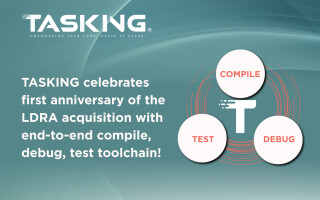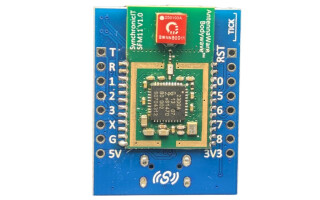ETG Releases EtherCAT Conformance Test Tool Version 2.3
June 14, 2022
News

Conformance to a protocol standard is the foundation for problem-free interaction of devices from different manufacturers in the same network.This interoperability is essential for the success of a communication technology. Therefore, the EtherCAT Technology Group attaches great importance to the conformance of EtherCAT devices: All ETG member companies commit to testing their devices with the EtherCAT Conformance Test Tool (CTT) before market release.
Version 2.3 of the EtherCAT Conformance Test Tool is now available to all EtherCAT Technology Group (ETG) members via the organization’s Technical Advisory Board (TAB).
Familiar to EtherCAT device manufacturers, the CTT represents the official reference for specification-compliant implementations of EtherCAT technology in EtherCAT field devices. The first version of the CTT was released in 2008, and so far, all updates have proven to be functional extensions and not functional changes.
Version 2.3 carries on all functionalities and tests of the first version and underlines the stability of the EtherCAT technology itself. This full backward compatibility has proven to be a great advantage for all suppliers and users of EtherCAT solutions.
The CTT extensions, whether in tool functionalities or test coverage, are based on practical requirements as well as feedback from device manufacturers. Over the years, the tool has evolved from a pure test tool that checks conformance after development is completed to a "development accompanying" software tool that can be used to configure EtherCAT devices, put them into the desired state and specifically stimulate them to behave in certain ways.
For example, additional user interfaces have been added for controlling and testing specific EtherCAT protocol properties as well as at the lower layers of the ISO/OSI models. The CTT now allows read and write access to the PHY registers, which is rarely supported by other tools. This is a helpful feature especially during initial hardware prototype startup.
All CTT functionalities are accessible for script-based control, and they allow automated test sequences that can be integrated into the overall device acceptance test. Aside from the functionalities supporting the EtherCAT implementation itself, the CTT test coverage has also been extended. Many semiconductor device profiles have been added to the standard test set. The coverage for the Servo-Drive-Profile according to IEC 61800-7-2 (the equivalent to CiA DS402) has been significantly increased in scope as well.
A special ETG working group, the Conformance Technical Working Group, defines and releases the test logic and the tests. The CTT software itself, which executes the logic defined in the tests and evaluates the behavior of the EtherCAT devices based on this logic, is developed and maintained by Beckhoff. This ensures continuous development of the test tool, including new functionality with a built-in configurator as well as support for all current Windows operating systems.
For more information, visit EtherCAT.





